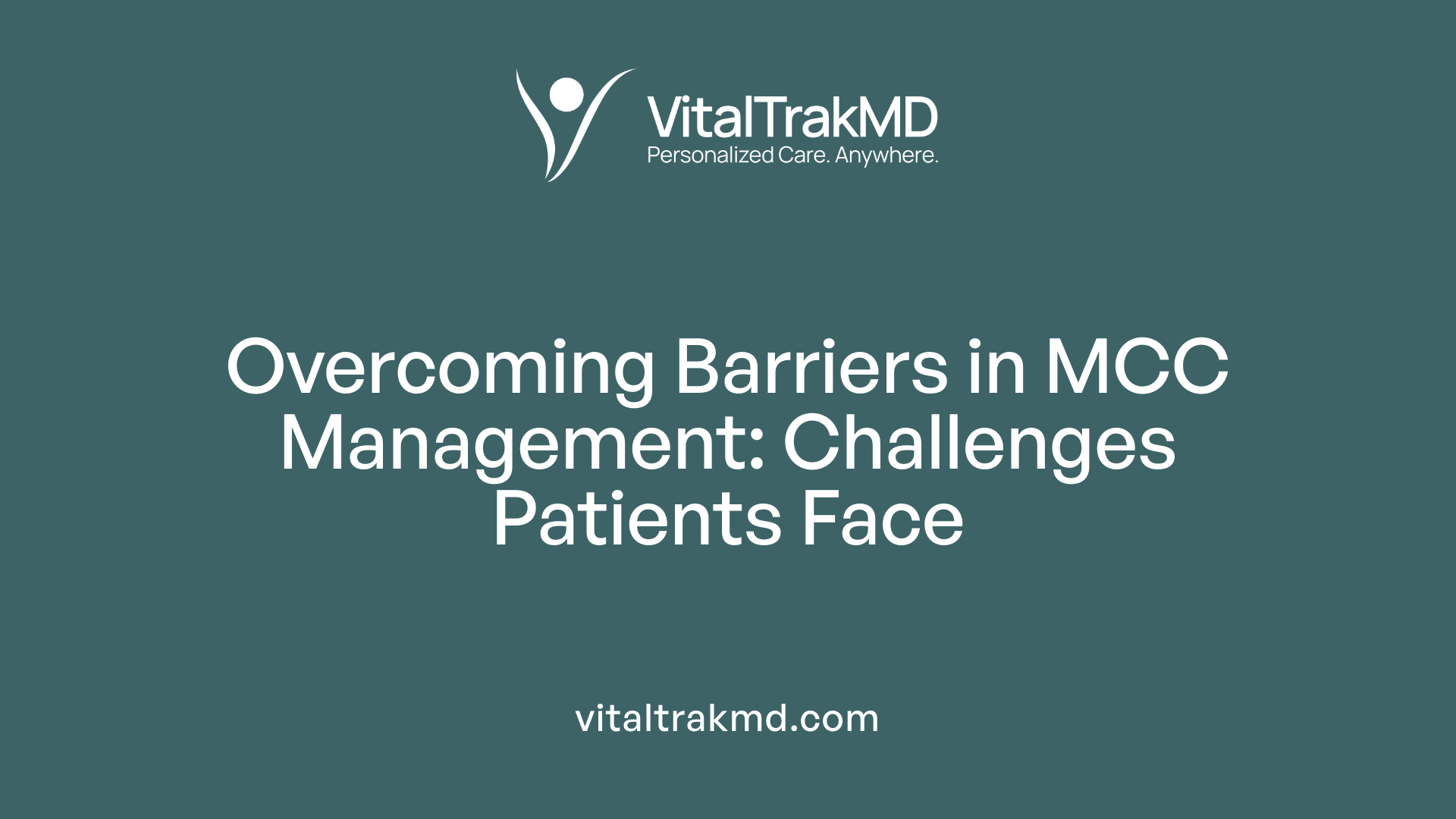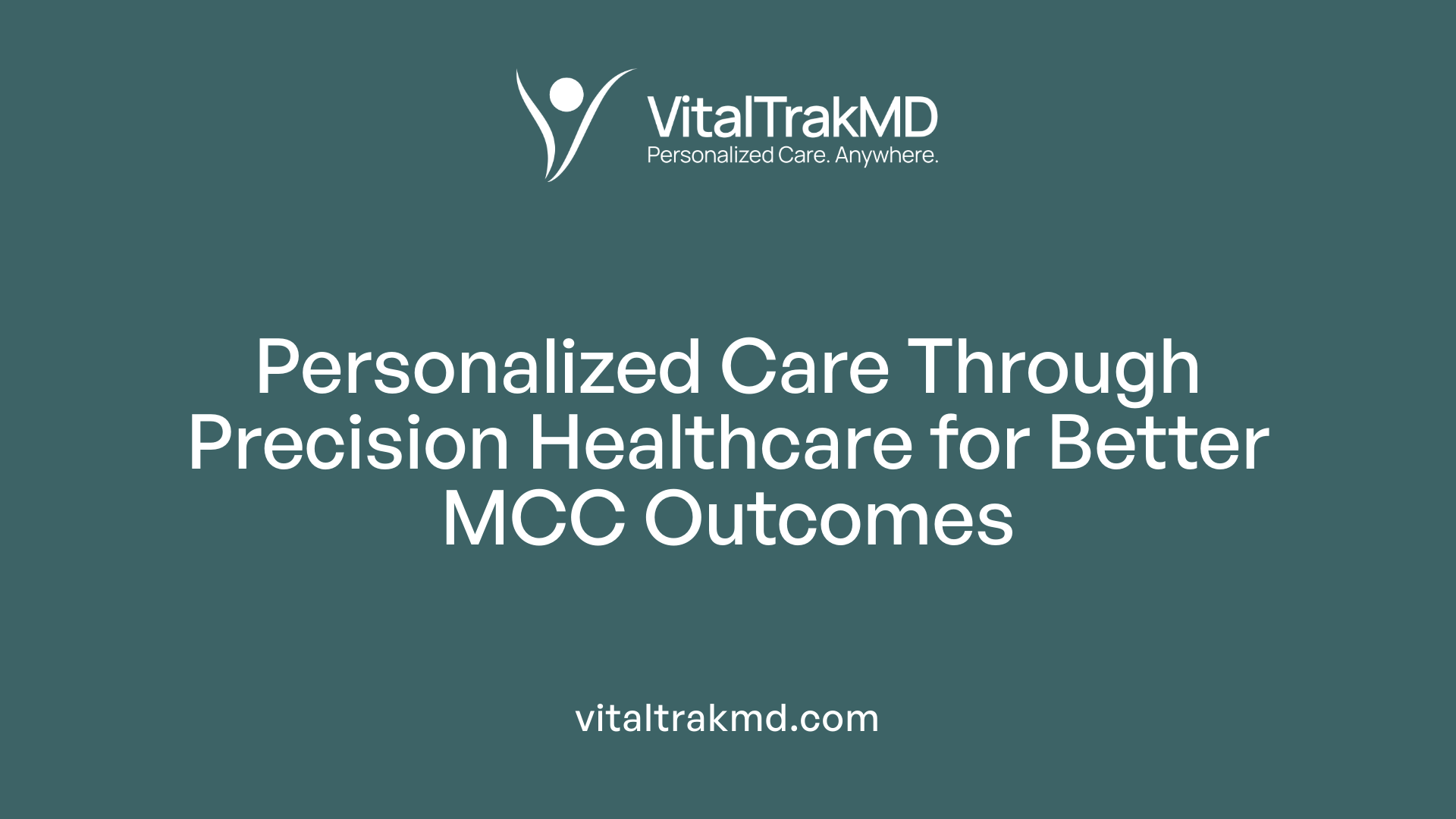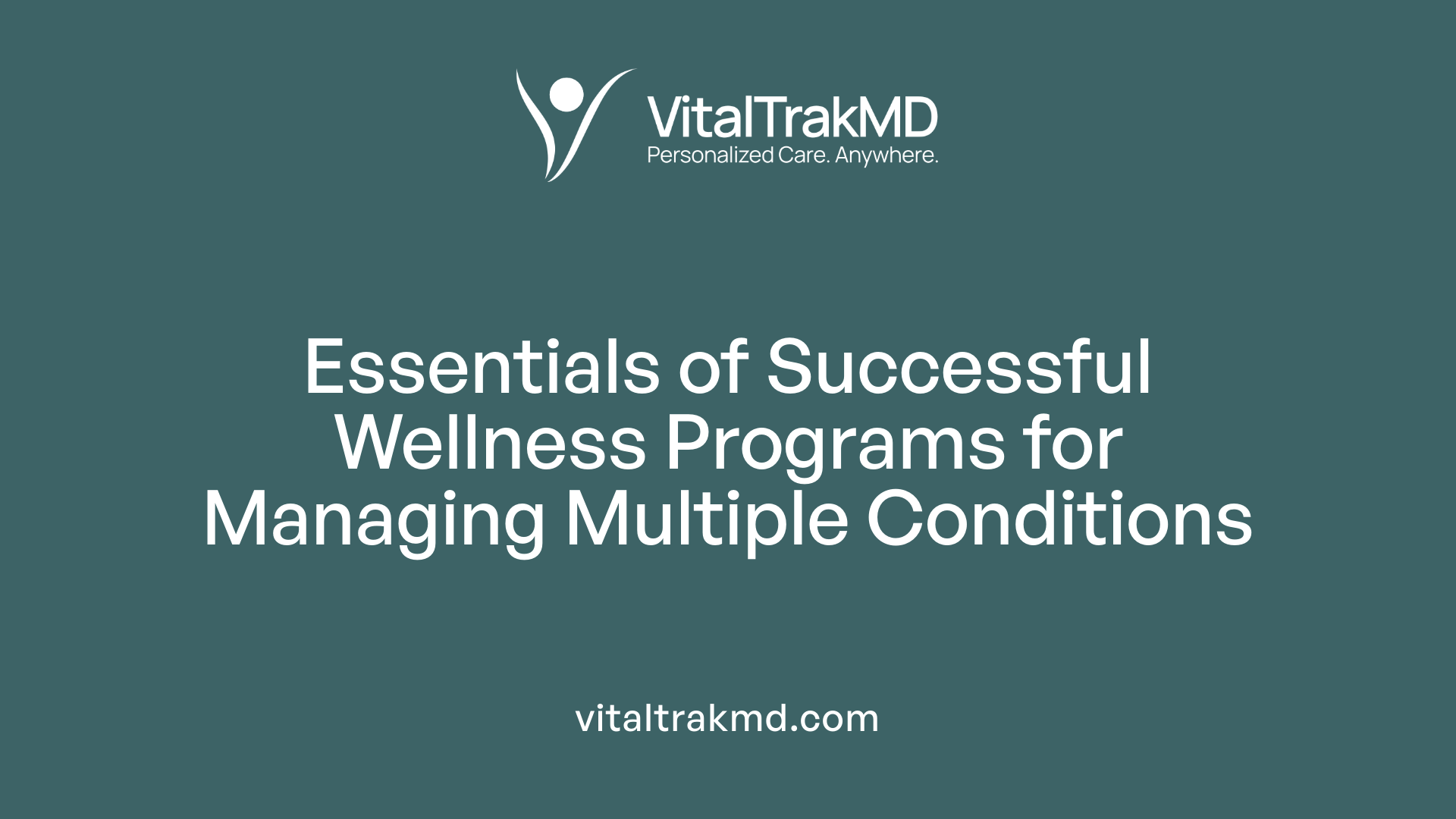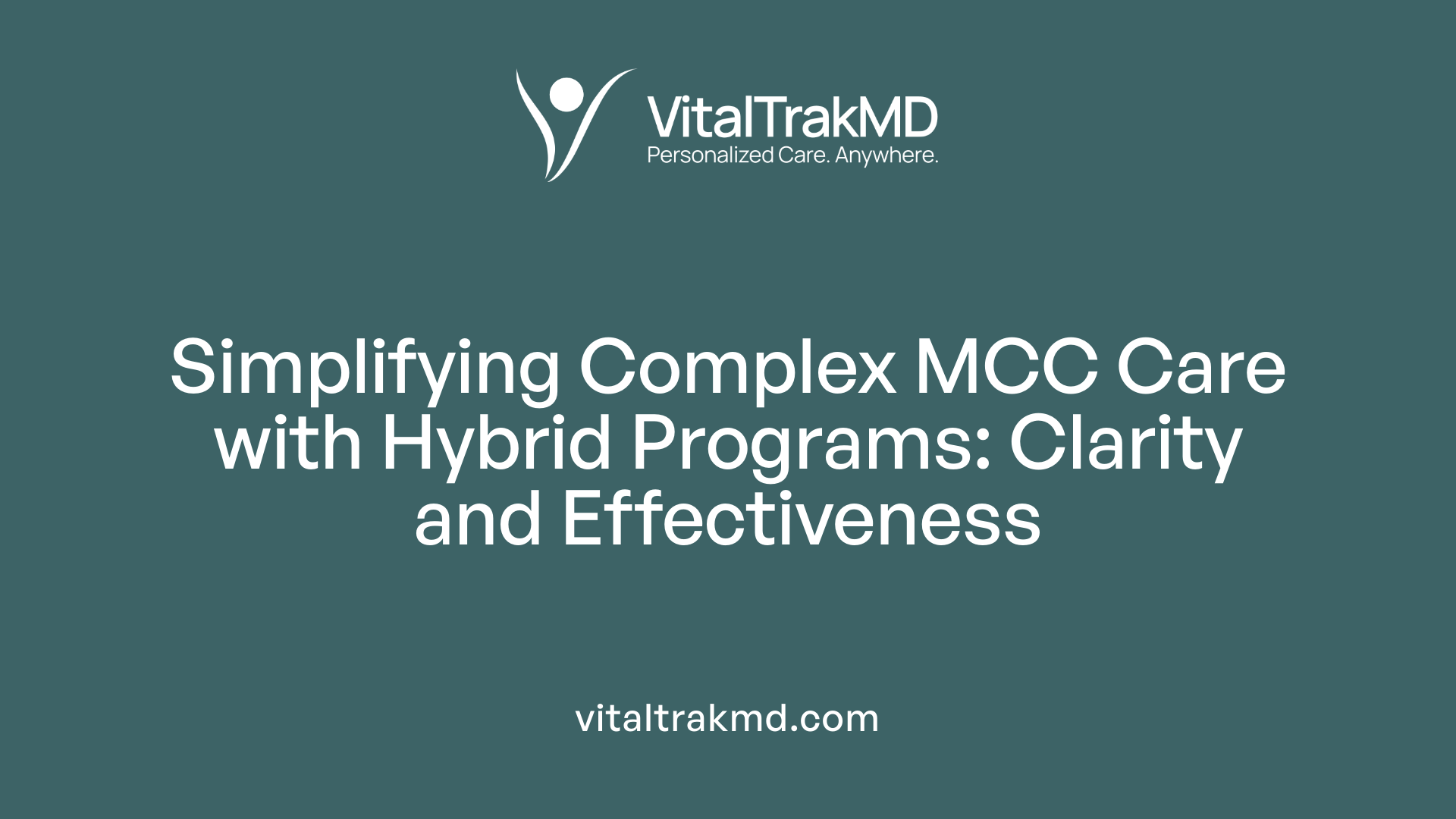Why Hybrid Programs Reduce Confusion in Multi-Condition Management

Addressing Complexity in Multi-Condition Care
Managing multiple chronic conditions (MCC) presents significant challenges for patients and healthcare systems due to fragmentation, complexity, and the need for personalized approaches. Hybrid programs – which combine digital tools with in-person support – are emerging as effective strategies to reduce confusion, improve psychological and digital health literacy, and support sustainable wellness management for individuals facing MCC.
Understanding the Challenges of Managing Multiple Chronic Conditions

What challenges do patients face when managing multiple chronic conditions?
Managing multiple chronic conditions (MCC) poses significant challenges for patients due to the fragmented nature of current healthcare delivery. The system is often disease-focused, addressing each condition separately rather than taking a holistic approach centered on the whole individual. This fragmentation leads to confusion among patients, duplicated services, and difficulty in coordinating care across multiple providers.
Additionally, managing MCC significantly burdens both individuals and the healthcare system. Patients frequently require numerous clinician visits, inpatient stays, and multiple prescriptions, driving up healthcare spending and resource utilization.
The complexity of MCC is also compounded by disparities across racial, ethnic, socioeconomic, and geographic groups. These disparities mean that some populations experience higher prevalence and severity of MCC, making standardized care insufficient and underscoring the need for tailored interventions.
Overall, patients with MCC must navigate a healthcare system that struggles to provide integrated, patient-centered care, resulting in poorer health outcomes and reduced quality of life.
The Role of Hybrid Health Programs in MCC Management

What Are Hybrid Health Programs?
Hybrid health programs blend digital health coaching with in-person medical support to offer a tailored and flexible approach to managing multiple chronic conditions (MCC). These programs typically involve initial face-to-face assessments and follow-up through online platforms, combining personalized care with easy access to digital resources.
How Do Hybrid Programs Support Multi-Condition Management?
Hybrid programs provide a seamless integration of technology and personal interaction. For seniors living alone with MCC, this approach bridges the digital divide by enhancing digital health literacy alongside psychological wellbeing. The direct contact with healthcare professionals addresses emotional and behavioral aspects that purely digital programs may miss.
Benefits of Hybrid Health Programs
- Enhanced Digital Health Literacy: Seniors become more confident using health technology through guided support.
- Improved Psychological Health: Regular check-ins reduce health distress and depression.
- Flexible Accessibility: Combines convenience of online coaching with personal engagement.
- Personalized Care: Tailored plans reflect the whole-person approach needed for MCC management.
Examples of Hybrid Models
SCULPTD Life exemplifies this approach, offering mandatory initial in-person assessments followed by optional participation in digital or face-to-face sessions. This model ensures comprehensive support regardless of geographic location while maintaining high levels of customization and patient engagement.
These hybrid programs effectively address the complexities of MCC by integrating digital education and coaching with empathetic, patient-centered care.
Digital Health Coaching and its Impact on Older Adults with MCC

What are the outcomes of digital health coaching self-management programs?
Digital health coaching self-management programs (DHCSMP-MCC) have been evaluated for their effects on older adults living alone with multiple chronic conditions (MCC). These programs primarily target improvements in health outcomes through enhancing self-management education, digital health literacy, and psychological health. After an 8-week intervention, participants showed significant reductions in health distress and depression, alongside better digital health literacy. This indicates notable mental health benefits and better ability to use digital health resources among the elderly population dealing with MCC.
How do these programs improve psychological health and digital literacy?
The program’s emphasis on self-management education and digital tools helped participants feel more confident in navigating health information online, which contributed to psychological well-being. By reducing feelings of distress and depressive symptoms, digital coaching encourages seniors to better engage with their health care. Enhanced digital literacy also equips them to access further health resources and communicate effectively with providers, bridging the gap caused by technological challenges.
Are there limitations in behavior change and medication adherence?
While the program improved mental health and literacy, it did not achieve significant changes in self-management behaviors, medication adherence, health-related quality of life, or self-efficacy over the short term. This suggests that digital coaching alone may not be sufficient to overcome the complex challenges of behavior modification and treatment compliance in older adults with MCC. Complementary strategies such as personalized coaching, provider support, or hybrid approaches may be necessary to produce broader health behavior changes.
What benefits and limitations exist for digital health coaching in MCC?
Digital health coaching has demonstrated benefits in reducing mental distress and improving digital skills crucial for managing MCC. However, its limitations highlight the need for integrated interventions that combine digital tools with personal support to address all aspects of self-management and adherence more effectively. Recognizing both its strengths and constraints can help shape future healthcare programs aimed at seniors with MCC to maximize their health outcomes and quality of life.
Bridging the Digital Divide Through Hybrid Approaches

How do hybrid programs address the digital divide in healthcare?
Many older adults face challenges related to the digital divide, including limited internet access and low digital literacy. These barriers can hinder their ability to benefit from purely digital health interventions, potentially widening health disparities.
Hybrid healthcare programs offer a promising solution by combining online tools with essential in-person support. By integrating technology-driven coaching with face-to-face assessments and personalized consultations, these programs accommodate individuals regardless of their digital skills or geographic location.
This hybrid model ensures that those who might struggle with technology still receive comprehensive, personalized care. For example, SCULPTD Life's program includes an initial mandatory in-person assessment with a doctor, followed by flexible online or in-person sessions, striking a balance between convenience and personal interaction.
Such approaches improve healthcare accessibility and engagement among older adults, making digital health literacy advancements more achievable and contributing to reduced healthcare disparities.
Importance of Personalized and Accessible Care
Personalized care that respects individual needs and preferences is essential, especially for older adults managing multiple chronic conditions. Hybrid programs tailor interventions based on each person's unique health profile and offer flexible participation modes.
This personalization fosters better engagement, satisfaction, and health outcomes, while addressing both the medical and psychosocial components of health management. By bridging technology with human touch, hybrid models exemplify inclusive, patient-centered care that spans diverse populations and capabilities.
Integrating Precision Healthcare in Multi-Condition Management

What is precision healthcare and how does it relate to managing MCC?
Precision healthcare is a novel approach that integrates conventional, functional, and integrative medicine to create personalized health care plans. It emphasizes understanding a patient's comprehensive health profile—including lifestyle factors, personal health goals, and underlying biological processes—to address root causes of diseases instead of merely managing symptoms.
Personalized health profiles and care plans
In precision healthcare, patients undergo thorough consultations and detailed laboratory testing to gather extensive information. This data supports the development of customized care plans that align with each individual’s specific needs. The process involves continual monitoring and annual reassessments to ensure the care adapts as health conditions evolve.
Emphasis on root causes and prevention
Unlike traditional models focused on symptom management, precision healthcare targets the underlying causes of chronic conditions. A preventive mindset is central to this approach, aiming to reduce the onset of new health issues and improve long-term health outcomes.
Relevance for MCC patients
For individuals managing multiple chronic conditions (MCC), who often face fragmented and disease-specific care, precision healthcare offers a holistic, patient-centered alternative. By tailoring treatment plans and addressing the diverse needs of complex cases, this approach supports better health management, potentially improving quality of life and reducing dependence on pharmaceuticals.
Designing Weight Loss Programs for Long-Term Success Within Hybrid Models
How Can Weight Loss Programs Be Designed for Lasting Results?
Long-term success in weight loss hinges on sustainable lifestyle changes rather than quick fixes. Programs must prioritize achievable goals, balanced nutrition centered around whole foods, and consistent physical activity. Allowing room for occasional indulgences is essential to maintain motivation and adherence over time.
Importance of Sustainable Lifestyle Change
Sustainable change means cultivating habits that individuals can maintain indefinitely. A focus on gradual improvements and flexibility helps prevent burnout and discouragement. This approach fosters a positive relationship with food and exercise, emphasizing wellness instead of just weight loss.
Balanced Nutrition and Physical Activity
Successful programs emphasize a balanced diet rich in nutrients, including fruits, vegetables, lean proteins, and whole grains. Regular physical activity tailored to individual capabilities supports metabolism and overall health. These components work synergistically to promote gradual, steady weight loss and improved well-being.
Ongoing Support and Accountability Mechanisms
Continuous encouragement and monitoring are crucial for maintaining momentum. Support systems can involve health professionals, peer groups, or digital tools that provide personalized feedback and track progress. Accountability increases the likelihood of persistent engagement in healthy behaviors.
Benefits of Integrating Online and In-Person Components
Hybrid weight loss programs combine the flexibility and accessibility of online resources with the personal connection of face-to-face interactions. Initial in-person assessments help customize plans, while digital platforms offer convenience for ongoing support. This blend caters to diverse needs and overcomes barriers like geographic limitations or time constraints, enhancing motivation and personalization.
| Aspect | Description | Why It Matters |
|---|---|---|
| Sustainable Lifestyle Change | Focus on habits that can be maintained long-term | Prevents relapse and supports lasting health benefits |
| Balanced Nutrition | Emphasis on whole, nutrient-dense foods | Supports steady weight loss and overall wellness |
| Physical Activity | Regular, tailored exercise routines | Boosts metabolism and cardiovascular health |
| Ongoing Support | Personalized feedback and accountability mechanisms | Enhances motivation and adherence |
| Hybrid Program Model | Combines online flexibility with in-person support | Addresses individual needs and logistical challenges |
Integrating these elements into weight loss program design maximizes the potential for enduring health improvements and quality-of-life enhancements.
Key Components of Effective Wellness Programs in Multi-Condition Contexts

What are the essential elements of wellness programs for complex health needs?
Wellness programs designed for individuals managing multiple chronic conditions (MCC) must integrate several core components to effectively support health and improve outcomes. Comprehensive health education forms the foundation, offering knowledge on self-management, nutrition, physical activity, and psychological well-being. This education is often paired with biometric screenings to track health metrics and provide personalized feedback.
Behavioral interventions such as coaching and motivational strategies are critical for adopting healthy habits. Studies have shown that programs incorporating these interventions, alongside digital health literacy and psychological support, can reduce distress and depression in older adults living alone with MCC.
Leadership and engagement strategies include strong organizational support with wellness coordinators, leadership endorsement, incentives, and fun, interactive activities to boost participation and adherence.
Virtual accessibility has become increasingly important, particularly highlighted by the COVID-19 pandemic's impact on individuals with MCC. Hybrid models combining online resources with optional in-person consultations offer flexibility, enhance accessibility, and promote confidentiality, which is crucial for sensitive health information.
Continuous assessment and refinement through regular monitoring and feedback loops ensure programs remain responsive to participant needs and evolving health landscapes. Ongoing evaluations help identify areas for improvement and maintain the effectiveness of interventions over time.
Together, these elements create a multifaceted approach that respects the complex, patient-centered needs of individuals managing multiple chronic conditions, while embracing technological advances and personalized strategies.
The Vital Role of Care Programs in Supporting Individual Health Goals
What role do care programs play in supporting patient health and wellness?
Care programs are essential in providing personalized and holistic support that addresses multiple facets of an individual's health, including physical, mental, and social well-being. Rather than focusing on isolated diseases, these programs emphasize whole-person care, recognizing patients' unique circumstances, preferences, and goals.
Preventive care is a foundational element of effective programs, helping to reduce the progression or development of multiple chronic conditions (MCC) by addressing social determinants of health and promoting healthy lifestyles. Digital health coaching, as seen in recent innovations, enhances patients' ability to manage their conditions by improving digital health literacy and psychological health.
Health coaching benefits include motivating healthier behaviors, reducing distress and depression, and bridging gaps caused by technology disparities, especially among older adults. This contributes to more informed and engaged patients who can participate actively in their care plans.
Coordinated services within these programs integrate medical management, nutritional guidance, and psychosocial support. Such integration counters the traditional fragmented, disease-centered model, enabling comprehensive care tailored to complex needs. By aligning clinical research, guideline-informed treatments, and community resources, these programs support sustainability and improved health outcomes.
Ultimately, care programs empower individuals to achieve their personal health goals efficiently and compassionately, fostering long-term wellness and reducing burdens on healthcare systems.
Why Hybrid Programs Reduce Confusion and Enhance Outcomes in MCC Management

Why are hybrid programs key to reducing confusion in managing multiple chronic conditions?
Hybrid programs effectively address the complexities of managing multiple chronic conditions (MCC) by blending technology with personalized care. This model integrates the advantages of digital tools—such as increased accessibility and consistent health monitoring—with the empathetic, tailored support of face-to-face interactions.
Integrated community-informed models
By embracing community input and integrating care delivery across multiple levels, hybrid programs ensure that treatments respect individual values and preferences. This approach aligns with the vision of organizing healthcare around the whole person rather than disease silos.
Combining technology and personal care
Using digital health coaching alongside in-person assessments enhances self-management education, builds digital health literacy, and supports psychological health. Participants benefit not only from the convenience of telehealth resources but also from direct interaction with providers who can customize care plans and address nuanced health needs.
Improving equity and reducing burdens
Hybrid models help bridge the digital divide often observed among older adults and marginalized populations. By offering flexible participation options, these programs promote equitable access to quality care. This flexibility reduces patient confusion and healthcare fragmentation, alleviating burdens associated with navigating complex healthcare systems.
Promoting sustainability and improved quality of life
Sustained engagement through hybrid delivery enables continuous monitoring and adjustments, supporting long-term management of MCC. Such models encourage healthier behaviors, improve psychological outcomes, and potentially reduce costly healthcare utilization, contributing to the sustainability of healthcare resources and improved patient quality of life.
Embracing Hybrid Solutions for Clearer Multi-Condition Care
Effectively managing multiple chronic conditions requires innovative, integrated approaches that go beyond fragmented, disease-specific care. Hybrid programs that blend digital health coaching with in-person support show great promise in reducing confusion, enhancing psychological well-being, and improving digital health literacy, particularly among older adults. By addressing disparities, incorporating precision and personalized health principles, and embedding key wellness and care program elements, these models offer clearer pathways to sustainable health and wellness. As healthcare systems evolve to meet the complex demands of MCC management, hybrid solutions stand out as vital tools for fostering clarity, equity, and lasting patient-centered outcomes.
References
- Effectiveness of a digital health coaching self-management ...
- Transforming care for people with multiple chronic conditions
- Precision Health Care: A New Approach to Better Health
- Weight Management Programs: The case for a hybrid ...
- The 7 Components of a Successful Weight Loss Plan
- 5 steps to sustainable weight loss
- 8 Steps to a Successful Workplace Wellness Program
- Comprehensive Wellness Program Components
Recent articles
Want to Feel Better and Live Healthier?
Join hundreds of patients taking control of their health with personalized care that fits their life – not the other way around.
Rated 4.8/5 by 32+ customers







